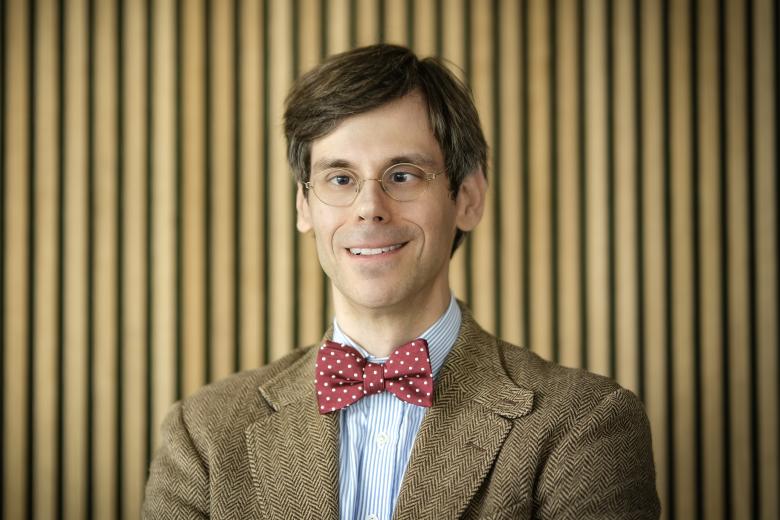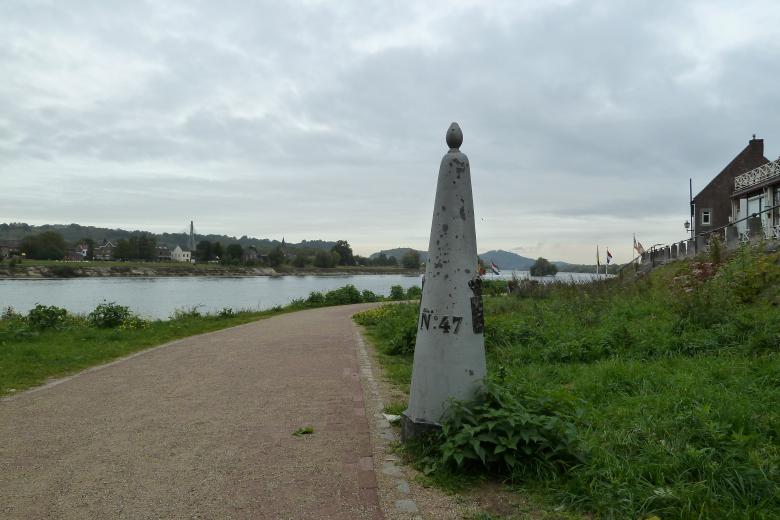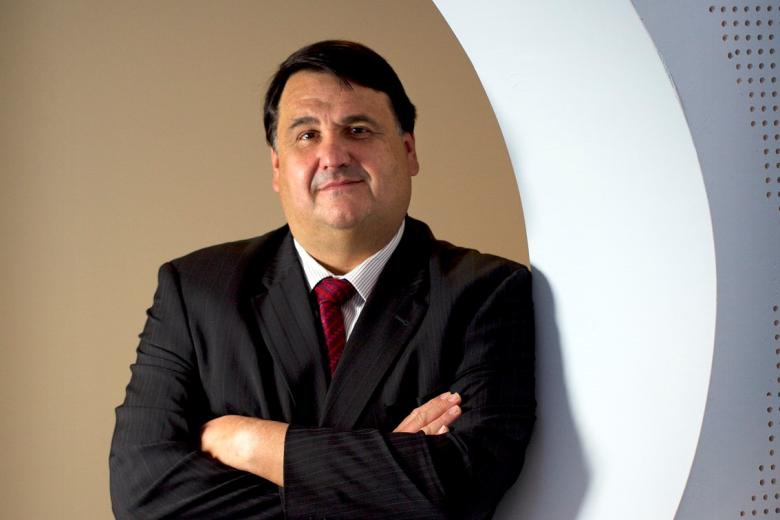The social university
(Deze tekst is alleen beschikbaar in het Engels)
Welkomstwoord Opening Academisch Jaar 2019-2020
The purpose of the opening of the academic year is to project optimism and discussing the way ahead. This is more difficult this year as we have experienced or expecting some dramatic changes to the higher education landscape in the Netherlands. First of all, the recent decision to shift existing budgets towards technical universities at the expense of others is a threat to the balance of subjects that form the core if the university - universitas - comprehensiveness. It is understandable that students and staff alike, the core members of the academic community, are worried about this and today, at this hour, more than 1000 of them are attending an alternative opening of the academic year in Leiden to express their concern. Let it be clear, they have our full support - we share their worries and must work together to find a solution against one-sided budged shifts that damage universities and their basic philosophy. And let us also be clear, that we will do everything in our power to maintain a healthy and fair balance between all disciplines at our university.
There is another development that worries us. Rumour has it that the Netherlands will put restrictions on internationalisation of universities, going against the trend of many other countries that are considering the international profile of universities a societal need. A societal need because the influx of the skills of international talent is deemed essential for economic wealth and societal health. We are carefully watching the developments in the Netherlands, but at the same time join the discussion and make it very clear that we continue on our chosen path of an international and European profile, which is the DNA of Maastricht University.
But after all, my role here is not to complain, but to explain why our university should claim a special position in these discussions, a role that is based on our tradition, our current strategy and future mission. In this context I would like to define our institutional profile as that of a "social university“.
What is a social university? It is a university that is not simply studying society from the outside - it is an institution deeply rooted and embedded in society. I recently talked to my colleagues of Arizona State University and was impressed by their mission statement, which reads as follows:
We are a comprehensive public research university, measured not by whom it excludes, but by whom it includes and how they succeed: advancing research and discovery of public value and assuming fundamental responsibility for the economic, social, cultural and overall health of the communities it serves.
I think this is a mission statement that could also be applied to Maastricht University, where the communities it serves have different dimensions, from the regional to the European and international context. I would also invite the decision-makers in The Hague to look more closely at the pragmatic and special way in which Maastricht University responds to the many opportunities that exist in Europe for the Netherlands in a spectrum that goes from the local to the international stage and back.
Abroad, I am regularly asked why our university is so visible in Europe. My answer: First of all, UM is of great importance to the region and the city of Maastricht, for example as one of the largest employers. And that we have, with our partners, the province of Limburg, the communities and partners form industries built the Brightlands campusses, who are seen by many international colleagues as a best-practice example for developing triple helix strategies. It is this close interaction and the mutual understanding that joining forces as a region and province provides critical mass, economic success and (international) recognition.
Social and cultural wellbeing are linked to economic health. As a university we are therefore on the lookout for matches with the business community, often located on the four Brightlands campuses in the province. On these campuses (in Maastricht, Heerlen, Sittard-Geleen and Venlo), the government's top sector policy is translated into educational institutions and businesses. On the Brightlands campuses transfers take place from idea to market. UM is an important driving force in this respect.
The figures in the report 'Inventory and added value of campuses in the Netherlands' - a study published last year by Buck Consultants International on behalf of, among others, the Ministry of Economic Affairs - show that this approach by Maastricht University is successful.
The report concludes that UM is one of the driving forces behind economic development in Limburg. And that the social relevance of UM has been great since its foundation in 1976 and is still growing every day.
As I have said earlier, a good interaction and a joint agenda with our regional government has been essential for this success. Because of this profile, the Dutch government should think how it can facilitate interactions between regions and universities even more. Germany, for example, takes a radical approach in this context. It is the Länder, the states, which play a central role in the allocation of funding for a university in Germany.
Although this system would be impossible to implement in the Netherlands, the needs of the region, the provinces as partners of universities could be strengthened. In Limburg we have shown that a joint strategy between the regional government and our university, as embodied in the Brightlands concept, has been proven successful and complementary to the national agenda, for the benefit of the citizens of our region, directly and indirectly.
But we have to think further than that. Knowledge is increasingly proving to be the product of international trade. Limburg is in a special position here, a Dutch province that has more borders with Germany and Belgium than contact with the rest of the Netherlands. Limburg, therefore, has a natural international orientation.
These regional developments, therefore, cannot be seen isolated, but interact with the international dimension, particularly here in Limburg. Reaching out to the regions across the borders and in Europe as a whole adds another important dimension. We therefore have a unique position, based on three pillars: we are a Dutch University with regional impact and European outreach focussing on the needs of the citizen in a socially responsible way.
Internationalisation offers opportunities in many areas. It forms citizens of the world who find a career in a labour market that is becoming increasingly international. In addition, it ensures that more and more knowledge workers remain in the Netherlands and thus form a counterbalance to the aging of the population and the fact that the region is shrinking in number. In short, it is also an economic necessity to embrace internationalisation.
Our new YUFE university alliance will extend the Maastricht concept and the Brightlands strategy to other European regions. We strongly believe that a social university can generate an impact well beyond the individual and a long-lasting one that will strengthen our society: this is the reason why we have worked to build the YUFE alliance, a consortium of young research-intensive universities that has been recently recognized as a frontrunner by the European Commission in the context of the first call of the European Universities Initiative.
YUFE is the acronym for Young Universities for the future of Europe and is an alliance of eight young European Universities, who share our vision and mission. The association has recently been funded by a large grant from the European Commission and received the highest score of all grant applications. We came together with universities from Madrid, Rome, Antwerp, Bremen, Essex, Cyprus and Eastern Finland and a number of associated partners to create a new concept of what a true European university should look like and how it can affect regions in a positive way. In our vision, the goal is to create a university on 8 locations, where students and staff cannot only move freely but also have a chance to engage in the respective regions in close contact with and to the benefit of their citizens. This will bring talented young people from the other YUFE locations to Limburg to work in the economic, societal or academic sector, for example on the Brightlands campuses or in social projects. At the same time Maastricht students can explore similar opportunities on the other locations of YUFE and gain important experiences in a university context, but also in real life situations. YUFE is committed to excellence, but not to elitism. That is why we have joined forces with KIRON, a German NGO that uses digital tools to help young people be admissible to university, young people that come from first generation families, or those that are economically challenged in the different regions as well as refugees. A social university is a university that is inclusive and also listens to the needs of its surroundings. YUFE, therefore, has the ambition to form the first truly European University, a university that is citizen-oriented and focusses on its societal mission and social responsibility.
As an international knowledge institution, Maastricht University, will continue to opt for a cross-border approach. We have no choice either: the traditional distinction between regional and (inter)national is increasingly giving way to the realisation that the issues of the future - sustainability, energy transition and circularity - cannot be confined within a single country.
It would be a good thing if the Netherlands were to follow more closely the specific way in which UM responds to the many opportunities that lie ahead. Not from a centralist perspective, but from the point of view of (forgive me to use a German expression) Weltoffenheit. The Netherlands should honour the specific role of UM's contribution to the (eu)regional economic infrastructure and to Europe.
Therefore, and based on the needs of our region, on both sides of the border and beyond, we need to address these needs of our immediate context. One approach is that we are working inter- and transdisciplinary - across the borders of disciplines. The interdisciplinary bachelor's programme Digital Society is just one example of this development. Another one is the exciting development around the Einstein Telescope, where in collaboration with virtual all universities of the Benelux region we will build a unique infrastructure to study gravitational waves, a project with far-reaching scientific but also societal implications. This will also be one of the thematic focus areas of this afternoon, along our strategy to strengthen science and engineering at UM, not only without neglecting other disciplines but also strengthening them. Humanities, social sciences and medicine will remain strong pillars of our profile.
In conclusion, the unique international and European profile of UM and its specific societal mission should not be called into question. UM embraces the European idea. With our YUFE partners, we have the ambition to be the first European University in the Netherlands.
For the simple reason that we are the bridge to Europe. We are located in the far south of the Netherlands, but centrally in Europe. Unlike, for example, Amsterdam, Leiden and Rotterdam. By the way, Rotterdam may have won the contest to host the Eurovision song contest but Maastricht has won the contest to host the European University of the Netherlands - a success that may prove even more sustainable and future-oriented.
As former Prime Minister - and Rotterdammer - Ruud Lubbers once put it: Maastricht is de uitgestoken hand van Nederland naar Europa. A striking formula that - at least abroad - makes it clear what our mission is: a social university, embedded in the region, but ready to build the bridges between Maastricht, Limburg, the Netherlands and Europe, based on the ideas of inclusiveness, mutual understanding by overcoming hostility and misunderstanding.
-
Seksuele veiligheid, de begroting en het definitieve MUMC+ voorstel
Beste leden van de UM gemeenschap,
Nu het jaar ten einde loopt, kan de Universiteitsraad terugkijken op een drukke periode. Onze nieuwe leden raken steeds beter vertrouwd met het werk van de Raad en leveren uitstekende bijdragen. In de afgelopen maanden hebben we ons beziggehouden met een breed scala...

-
Nieuw raadsjaar, kwaliteitsafspraken, DEI, alumni, internationalisering & mensenrechten
Beste leden van de UM gemeenschap,
Het nieuwe academische jaar is in volle gang, en dat geldt ook voor de vertegenwoordigende raden van de UM. De nieuw gekozen Universiteitsraad en Faculteitsraden, evenals de Dienstraden, zijn druk bezig met het bespreken van beleidsvoorstellen en het voeren van...

-
De grensregio, Europa en samenwerking: een analyse van de verkiezingsprogramma’s
Het is bijna tijd voor de verkiezingen. Voorafgaand worden verkiezingsprogramma’s aan menig meetlatten gelegd, die van het CPB, het SCP, vanuit het oogpunt van rechtsstatelijkheid, duurzaamheid, leefomgevingseffecten en ga zo verder. Vanuit ITEM legden wij de verkiezingsprogramma’s aan de meetlat...

